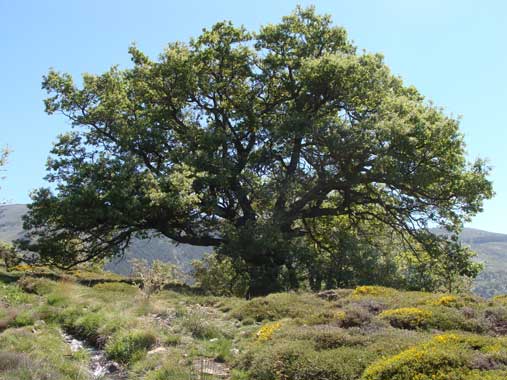
Projects
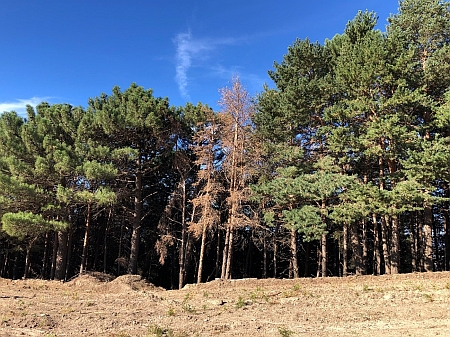
Red Ibérica de Decaimiento Forestal Inducido por el Clima.
Reference: RED2024-153822-T. Financial support by Spanish Ministerio de Ciencia, Innovación y Universidades. Since May 2025 till April 2026. Coordinated by Francisco Lloret Maya (Autonomous University of Barcelona). Web page: https://decaimiento.es
The Iberian Network for Climate-Induced Forest Decline was created to connect and coordinate different research groups working on the study of forest decline, a phenomenon of increasing relevance in the context of climate change, prolonged droughts, and other environmental stressors. This initiative will foster scientific collaboration, the exchange of data and methodologies, and the organization of joint activities that promote the advancement of knowledge in this area.
«Comportamiento en condiciones de campo de Pseudomonas simiae PICF7: biocontrol de la verticilosis de olivo y efecto sobre la microbiota del suelo y la raíz”. Reference 202440E003; Proyectos Intramurales CSIC (2022). Financial support by CSIC. Since January 2024 till December 2026. PI: Dr. Jesús Mercado Blanco
«To assess the biocontrol capacity of Pseudomonas simiae PICF7 against Verticillium wilt of olive (Verticillium dahliae) using adult trees, and to determine the effect that the introduction of strain PICF7 has on both the rhizospheric and the root endophytic microbiota of the trees. The long-term experiment will be conducted in an orchard subjected to the usual agronomic management implemented in the Mediterranean area, and were the presence of the pathogen has been earlier confirmed».
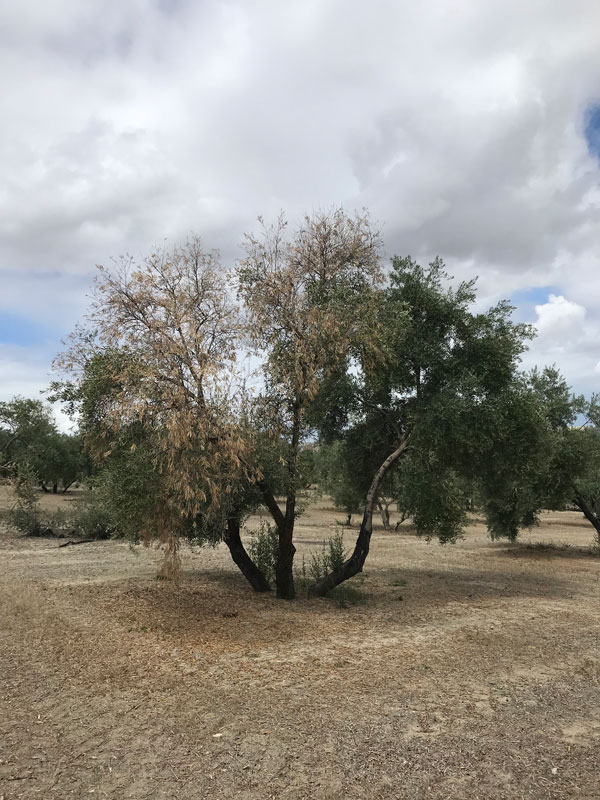
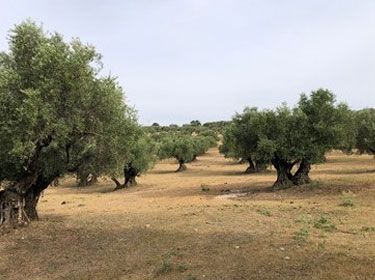
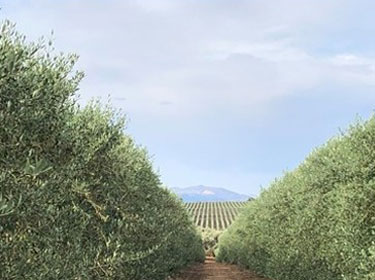
The soil biodiversity and functionality of Mediterranean olive groves: A holistic analysis of the influence of land management on olive oil quality and safety. Reference: HE/MISS-SOIL/0199, Project 101091255 Soil O-live. Financial support by European Union, HE Soil Health. Since January 2023 till December 2027. Coordinated by Dr. Antonio Manzaneda (University of Jaén) and Dr. Manuel Fernández López (CSIC groups).
The objective of the Soil O-live project is to perform the first rigorous diagnostic of the whole environmental situation of olive orchards soils at a broad scale, comprising the most important areas and agronomic modes of olive production across the Mediterranean region and its relationships to olive oil quality across the food chain. Soil O-live aims (O1) to analyze the impact of pollution and land degradation on soils from olive groves in terms of multi-biodiversity and ecological function at different levels of organization and scales; (O2) to investigate the relationship of soil health status with quality and safety of olive oil; (O3) to implement effective soil amendments and cutting-edge ecological restoration practices that promote manifest soil biodiversity and functionality enhancements in Mediterranean olive orchards across its native range of distribution that should be eventually translated to improvements in olive oil quality and safety; (O4) to define rigorous ecological thresholds that allow implementing future explicit norms and regulations to design a novel future certification for healthy soils in European olive oil, which in turn, may be translated to market as a valuable asset of the products.
Directed evolution of improved microbial consortia for biocontrol of Fusarium wilt of banana in the Canary Islands (EVOMICROBIA). Reference: PLEC2021-007777. Financial support by Spanish Ministerio de Ciencia e Innovación. Since December 2021 till November 2024. Coordianted by Dr. Antonio di Pietro (University of Cordoba).
EVOMICROBIA uses a novel approach based on experimental evolution to generate a consortium of highly efficient biological control agents (BCAs) to combat Fusarium wilt of banana (FWB) in the Canary Islands. The project will establish a microbial collection of indigenous Canarian banana endophytes, which represents a rich and largely untapped source of potential biocontrol agents.

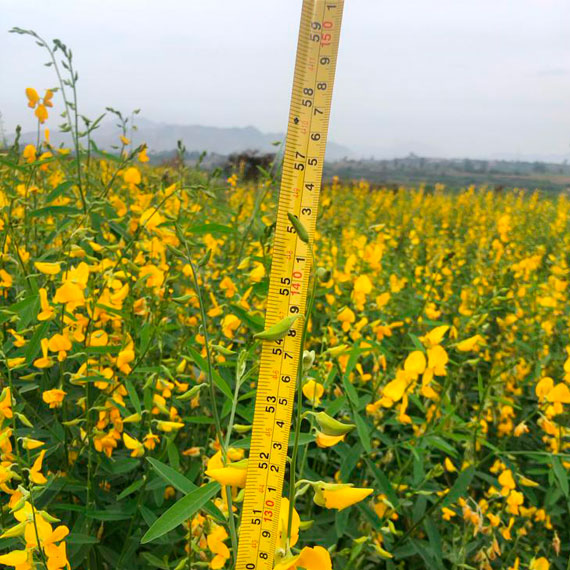
Gestionando la vida en el suelo mediante los abonos verdes para promover seguridad alimentaria y producción sostenible de cosechas de agro-exportación. Reference: PE501079087-2022. Financial support by CONCYTEC, PROCIENCIA; Gobierno de Perú. Since August 2022 till December 2023. Coordinated by Dr. Gregorio J. Arone Gaspar (National University of Barranca, Perú) and Dr. Manuel Fernández López (EEZ-CSIC).
Incorporation of green manure to agriculture promote the microbial life in soils and restore its natural fertility, which it is a guarantee of sustainable yield and food security for farmers and their families. The general objective of this project is to assess the effect of the incorporation of Crotalaria juncea and Lupinus mutabilis (two leguminous plants) as green manure in order to restore the soil natural fertility at Barranca (Lima) and Acobamba (Huancavelica, Peru).
The olive holobBIOnt: LInking plant MIcrobiome and host Tolerance to biotic and abiotic Stresses (BIOLIMITS). Reference PID2019-106283RB-I00. Financial support by Spanish Ministerio de Ciencia e Innovación. Since June 2020 till May 2024. IP1, Dr. Manuel Fernández López and IP2, Dr. Jesús Mercado Blanco.
The proposal BIOLIMITS aims to examine questions like how the olive belowground microbiome responds to the introduction of biological control agents (BCA) of VWO. We also aim to dissect specific genetic responses of the host and the pathogen during the interaction, deepening in the mechanisms of VWO tolerance displayed by olive cultivars, and to expand our knowledge on the participation of the olive microbiome in these mechanisms. In addition, we will ask how the in-soil persistence of biocides, mainly herbicides commonly used in olive cultivation practices, has modulated soil microbial communities.
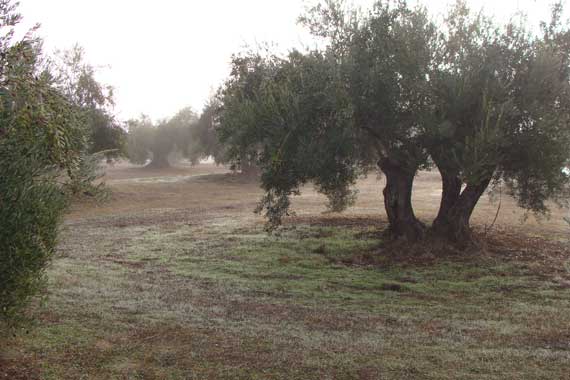
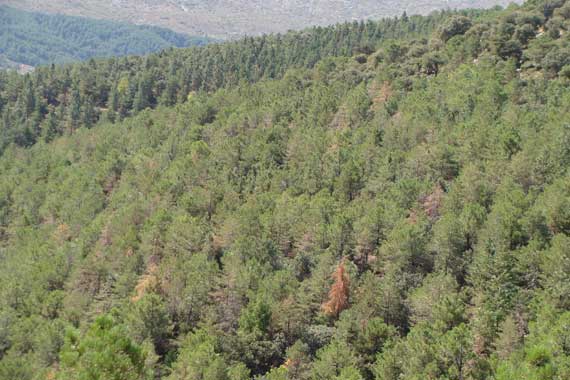
Sustainability for Mediterranean Hotspots in Andalusia integrating LifeWatch ERIC (SUMHAL) (WP7: Improving sustainability of Mediterranean forests and silvopastoral agrosystems under climate change). Reference LWE2021-03-025. Financial support by Spanish Ministerio de Ciencia e Innovación, LifeWatch ERIC program to CSIC institutes at Andalucia. Since July 2020 till June 2023. Coordinated by official CSIC Delegate at Andalucia; Dr. Manuel Fernández López (WP7 IP).
The project aims at implementing a strategy for biodiversity conservation in sustainable natural or semi-natural systems of the western Mediterranean hotspot, based on highly technological infrastructures, and the partnership between excellent researchers and citizens. WP7 aims to monitor changes and environmental problems at landscape scales, focussing both on land degradation and overall ecosystem performance, and on the sustainability of forests and silvopastoral systems (production, pathogens, management, fires…).
Seguimiento y Restauración del Retamar de alta montaña en el Parque Nacional del Teide tras el incendio de 2019 (SERREPARA). Reference ProID2020010103. Financial support by Gobierno de Canarias. Since May 2020 till September 2022. IP: Milagros Alicia León Barrios.
It is proposed a multidisciplinary study to follow the recovery, after a wildfire, of the typical shrub vegetation of broom plants of Teide National Park. In this sense, the soil microbiota and the plant-microbe interactions will show valuable ecological markers and will determine the ecosystem structure and functionality, in order to recover the original status. Thus, it is proposed the study of the evolution of the physico-chemical soil parameters after the wildfire, together with microbiological (microorganisms culture and NGS techniques) and ecophysiological (plant metabolomics and physiological parameters) to assess the real fire impact on the whole ecosystem

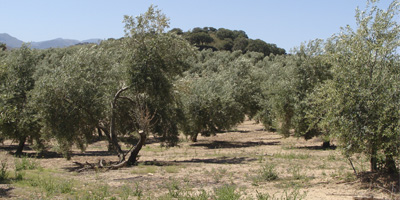
Estrategias basadas en aproximaciones ‘-ómicas’ para el manejo de la Verticilosis del olivo. Reference 2019AEP195. Financial support by Consejo Superior de Investigaciones Científicas (CSIC). Since January 2020 till May 2020. IP: Dr. Manuel Fernández López.
Intermediary project between OVerMan (2016-19) and BIOLIMITS (2020-24).
Omics-assisted strategies for Verticillium wilt of olive management (OVerMan). Reference AGL2016-75729-C2-1-R. Financial support by Spanish Ministerio de Economía y Competitividad. Since December 2016 till December 2019. IP1, Dr. Jesús Mercado Blanco and IP2, Dr. Manuel Fernández López.
The project aims to identify differential characteristics in the genome of the most virulent variety of V. dahliae which help to explain its lethality. It also aims to fill the important gap in our knowledge on the genetic and molecular mechanisms underlying the susceptibility/tolerance level of olive cultivars to VWO. This is relevant since the use of tolerant varieties is likely the most interesting control measure within the above-mentioned integrated management strategy.
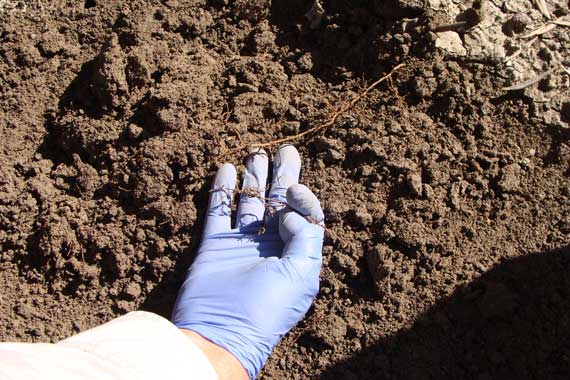

BioLink: Linking Belowground Biodiversity and Ecosystem Function in European Forests. Financial support by E.U. COST Action FP1305. Since April 2014 till April 2018. Coordinated by Dr. Martin Lukac (University of Reading, UK); Dr. Manuel Fernández López (MC member from Spain).
The main objective of the Action is to create a forum where current understanding of functional belowground biodiversity at different scales and trophic levels in European forests can guide the development of prescriptions for sustainable forest and tree crop management.
Adaptación y mejora de la resiliencia del monte mediterráneo frente al cambio climático y los incendios forestales mediante el manejo de microorganismos rizosféricos. Reference 20134R069, RECUPERA 2020 program. Financial support by Spanish Ministerio de Economía y Competitividad, and CSIC. Since December 2013 till December 2015. IP: Dr. Manuel Fernández López.
The general objective of this project is the characterization of the soil prokaryotic diversity and its metabolic functions, in order to apply microbial inoculants that help to increase forests resiliency against climate change and improve environmental sustainability.
